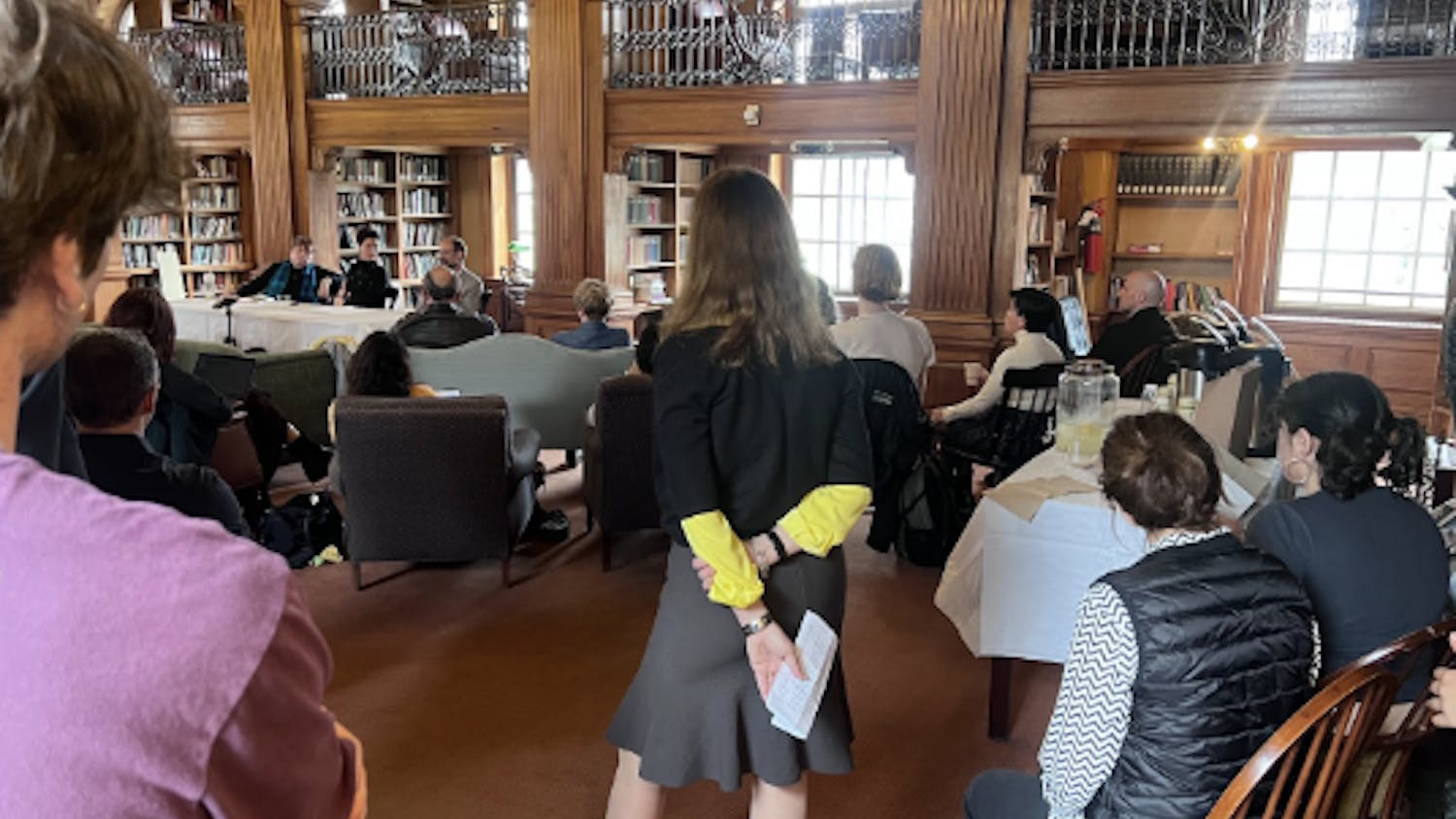There is an unwritten rule in music: remixes and reinventions of old classics are usually bad. Twice this year Dartmouth students have been witness to this truth, with Wynton Marsalis' attempt to play John Coltrane's "A Love Supreme" and Uri Caine's disastrous stab at Bach's "Goldberg Variations." Thankfully, a group performed last Friday that quiets the cynic in all our hearts, reminding us why reinvention can work.
Ensemble Ongaku-Zammai performs romantic masterpieces in an unusual arrangement of period and modern instruments. The instruments they play range from harpsichord to harp, and viola to viola da gamba.
During the performance, members of the group changed their instruments frequently, adding a certain color to some pieces. In one piece, ensemble leader and flautist Jun-Ichi Tanaka changed instruments seven times during the short period of 32 bars of music.
When asked about the merits of re-orchestration, Tanaka said, "I am sometimes afraid the composer's original intention might be lost, but I feel we are creating something special which is inspired by the composer's true intent, a part of the piece that was perhaps lost even in the composer's original transcription from his mind."
Friday's performance opened with Falla's "Ballet Suite", a short collection of pieces whose emotions ranged from soaring and blissful to dark and entrancing. The collection was made for this unusual quintet. Cellist Mizuhiro Tasaki's arrangements were breathtaking and masterfully done. Every piece took full advantage of each member's instruments, exchanging solo melody lines at an amazing pace. Only Tomoko Kakuma's harp and harpsichord were forced to take a backseat on several of the numbers. But the other four members of the Onkagu-Zammai shared the spotlight well.
The group was not afraid to be experimental in their performances of the Falla set. During the last piece of Falla's, the cellist strummed chords, bringing an unusually delightful timbre to the happy mood of the piece that bordered on bluegrass.
Next was Prokofiev's "Romeo and Juliet," again with amazing arrangements. The shifts between forte and piano and use of ritards showcased the group's togetherness. Prokofiev's piece is known for its virtuosity, and each member of the ensemble took a turn playing these difficult passages. Unfortunately, violinist Chima Kawakara's attempts at these passages were without emotion. Throughout the concert, even some easy melodic lines were delivered cold and dead to the audience, in contrast to the passion of Tanaka and Tasaki's playing. Kawakara was not a reflection of the orchestration though; it was merely her individual performance.
The program continued with Debussy's "Joyeuse." Debussy's piano has been interpreted for orchestral settings before, and though some emotive sides of the piece were lost without a piano, the new orchestrations added flavor to the performance. Particularly, the timbre of the harpsichord was unusual and invigorating
The program concluded with Ravel's Piano Concerto in G-minor. In this piece the group's constrictions were most projected. When listening to an original recording of the concerto, one of the most striking aspects was the piano introduction of the second movement. However, the contrast between bare piano and full orchestra was never displayed since all five members of Ongaku-Zammai were hard pressed to reproduce the needed notes.
For the dozen who stayed for the post-performance discussion, the group played, from their new CD, Ravel's "Fairy Garden," a simple, beautiful piece, which left a sweet taste in the listener's mouth.
The Ensemble Ongaku-Zammai should be lauded for their ability to break barriers sensibly, creating music that is both first-class and innovative. Most recreations are mistakes, but most musicians do not have the orchestration abilities of the group's Mizuhiro Tasaki.



